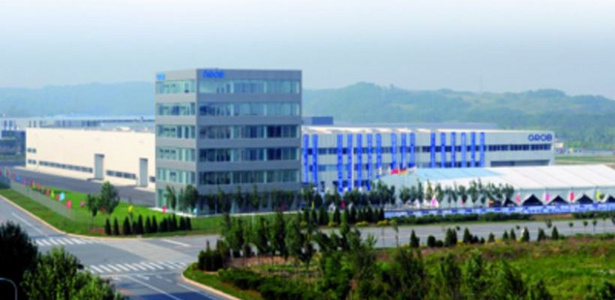The presence of Dalian's party leader Jun Tang at the opening event was both remarkable and a great honor. And he was not the only person who was struck by what has been created on the GROB site in such a short time. This production center, which took less than 12 months to build, is the logical consequence of GROB's decade-long corporate strategy. The GROB Group can now finally meet in full the needs and expectations of its customers in China, as from now on all of GROB's accumulated expertise in sales, production and service is available without restriction and on the spot.
The strategic direction of the GROB production group
Eugen Nägele, Dalian's plant manager explained the way forward: "The long-term aim in Dalian is and remains to become a supplier of system components. It is important that we combine the strengths of our two countries and their facilities, so that we can make them all available to our loyal customers and the many new customers in China. A life-long partnership is our mission, a commitment against which we can be measured." In the process GROB Dalian will blend seamlessly into GROB's existing, worldwide production group. The already effective co-operation between Mindelheim/Sao Paulo and Mindelheim/Bluffton will in future be adapted to include the new plant in Dalian. GROB's plant in China will now play an important part in improving competitiveness, not just for the group as a whole but also in the individual locations.
Demanding, but achievable goals
For the 400 workers, volumes of up to 60 million euros in three years are the target that they are striving for in 2014. During this period, productivity must increase annually by around 50 percent –with increasing product diversity, complexity and the number of product variations. From the simpler component groups on the G-module and interlinking systems, the plant's product portfolio will change to include by the fourth year of production complete G-modules and interlinked production lines. Stand-alone machines with localized components will form the basis of production capacity.
A superb training partner
The prerequisite for this kind of development is to find new ways forward for integrating young Chinese workers into the production process. Eugen Nägele explained the training strategy: "We are proud of our co-operation with the Hans Seidl Foundation at Weifang. It is enabling us to provide training for 25 young Chinese workers using German training methods in the fields of Industrial Mechanics, Industrial Electronics and Milling Engineering over a period of three years. In subject-block teaching sessions starting in the second year from September 2012, the young trainees will for the first time be working in production, itself only at an early stage. Bringing young Chinese workers up to speed in skills, which are only taught in a school setting to a limited extent in Germany and not at all in China, will probably be the greatest challenge we face over the next few years.
Three main wishes
Ask Eugen Nägele for his three main wishes for the new plant in Dalian and his vision for the future becomes perfectly clear: "Having good young workers here in China is the most important thing. So I wish that the training we give the young Chinese workers quickly bears fruit (quality, productivity, efficiency at the same level as in Mindelheim) and that manufacturing depth goes further and faster through systematic product localization. And then of course that we soon have all departments (sales, construction and after-sales service) and all their skills and expertise together under one roof."
– Now those are major challenges we are setting ourselves!

